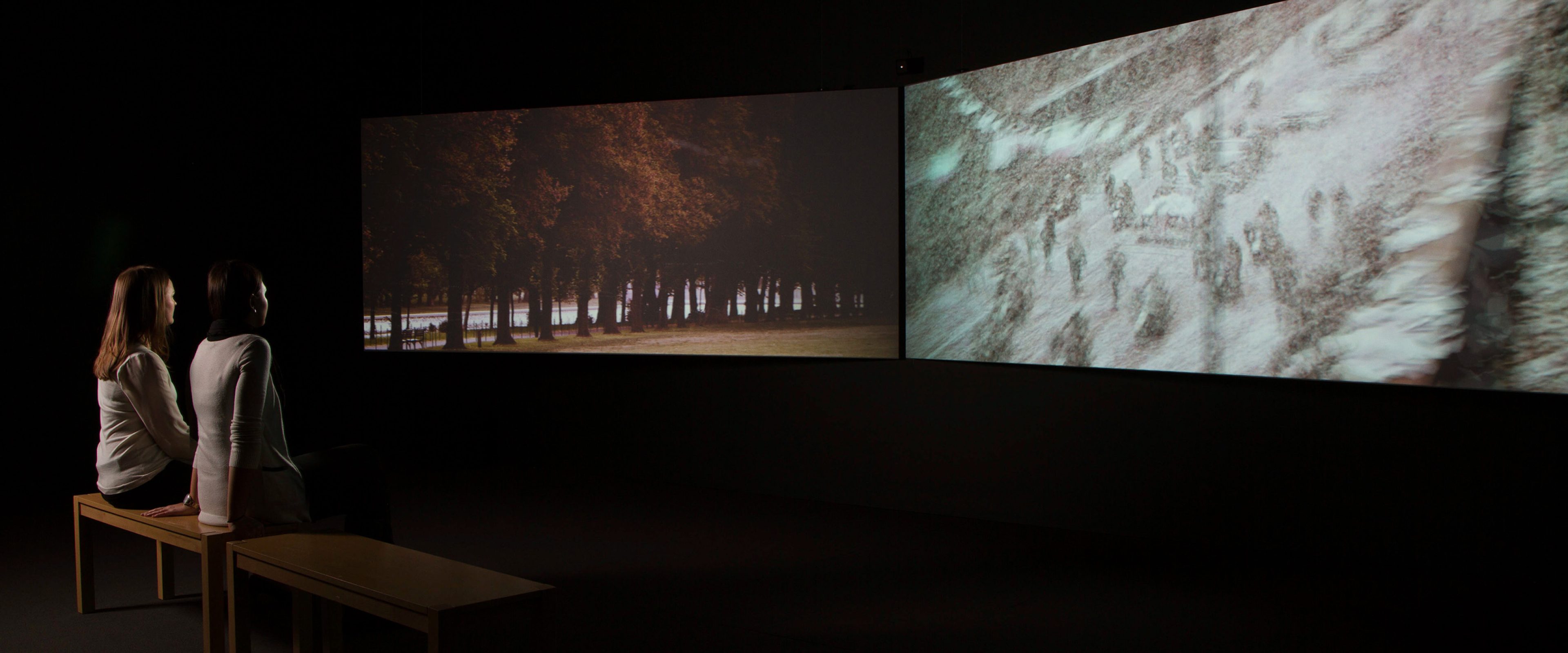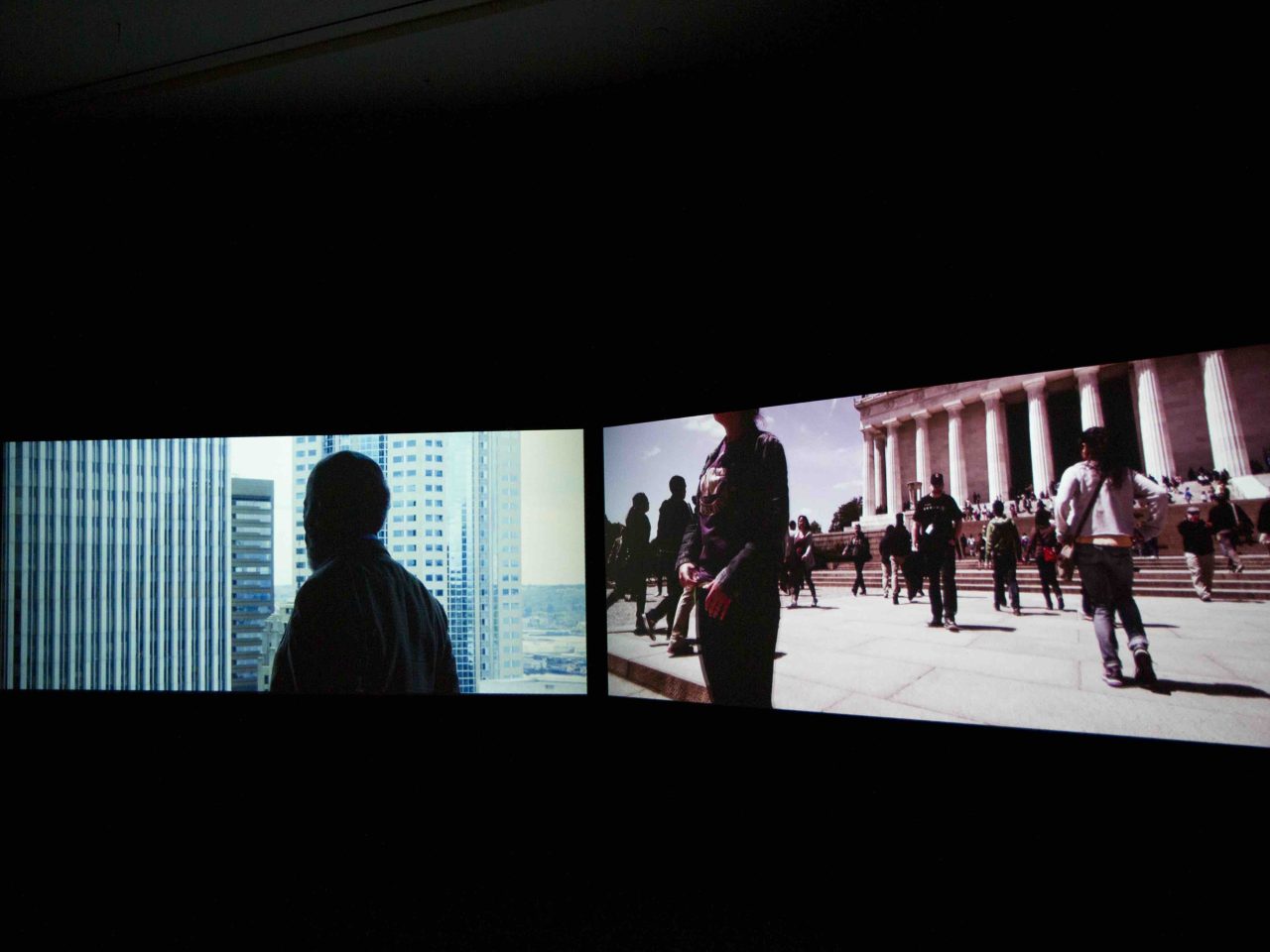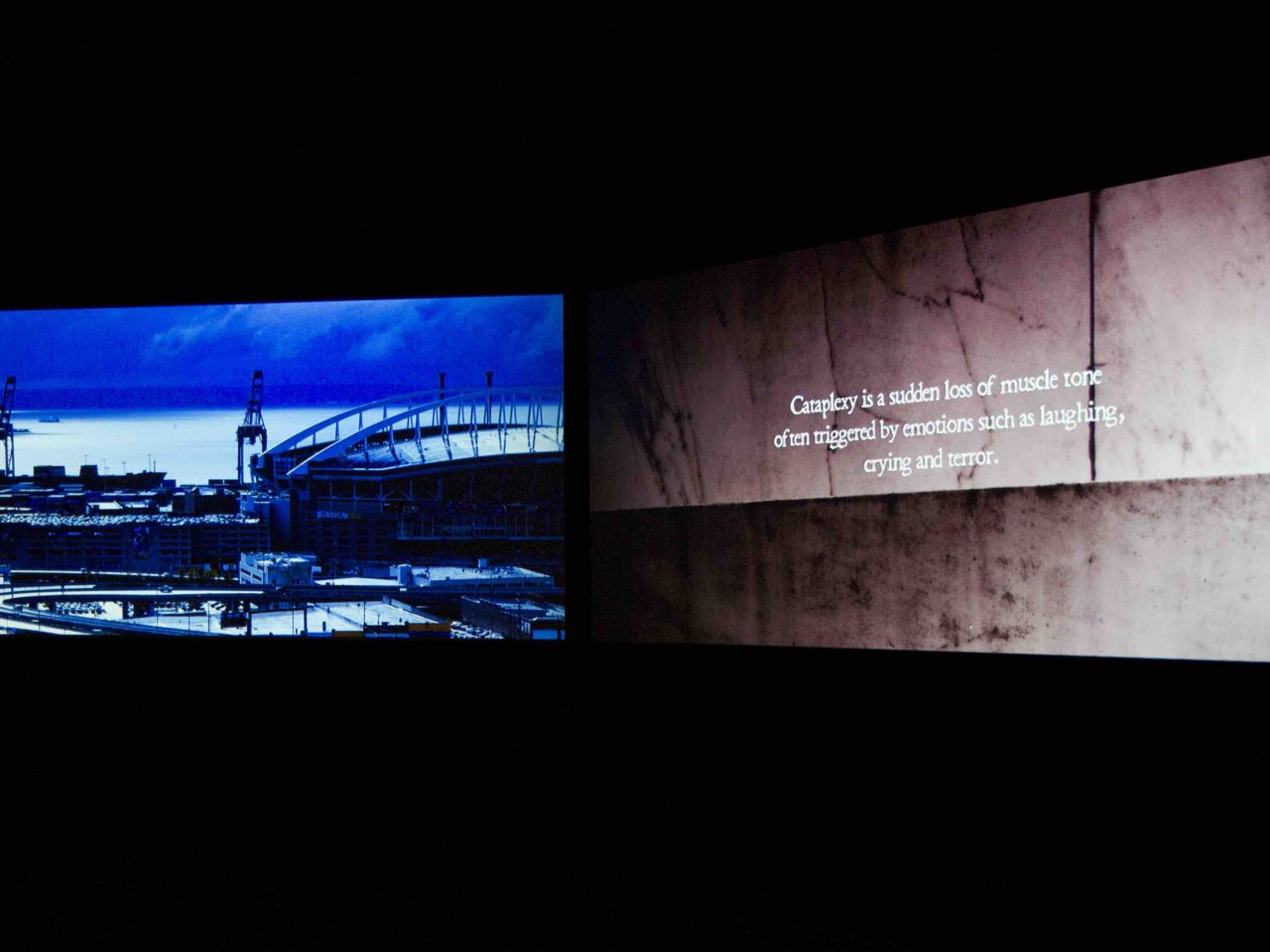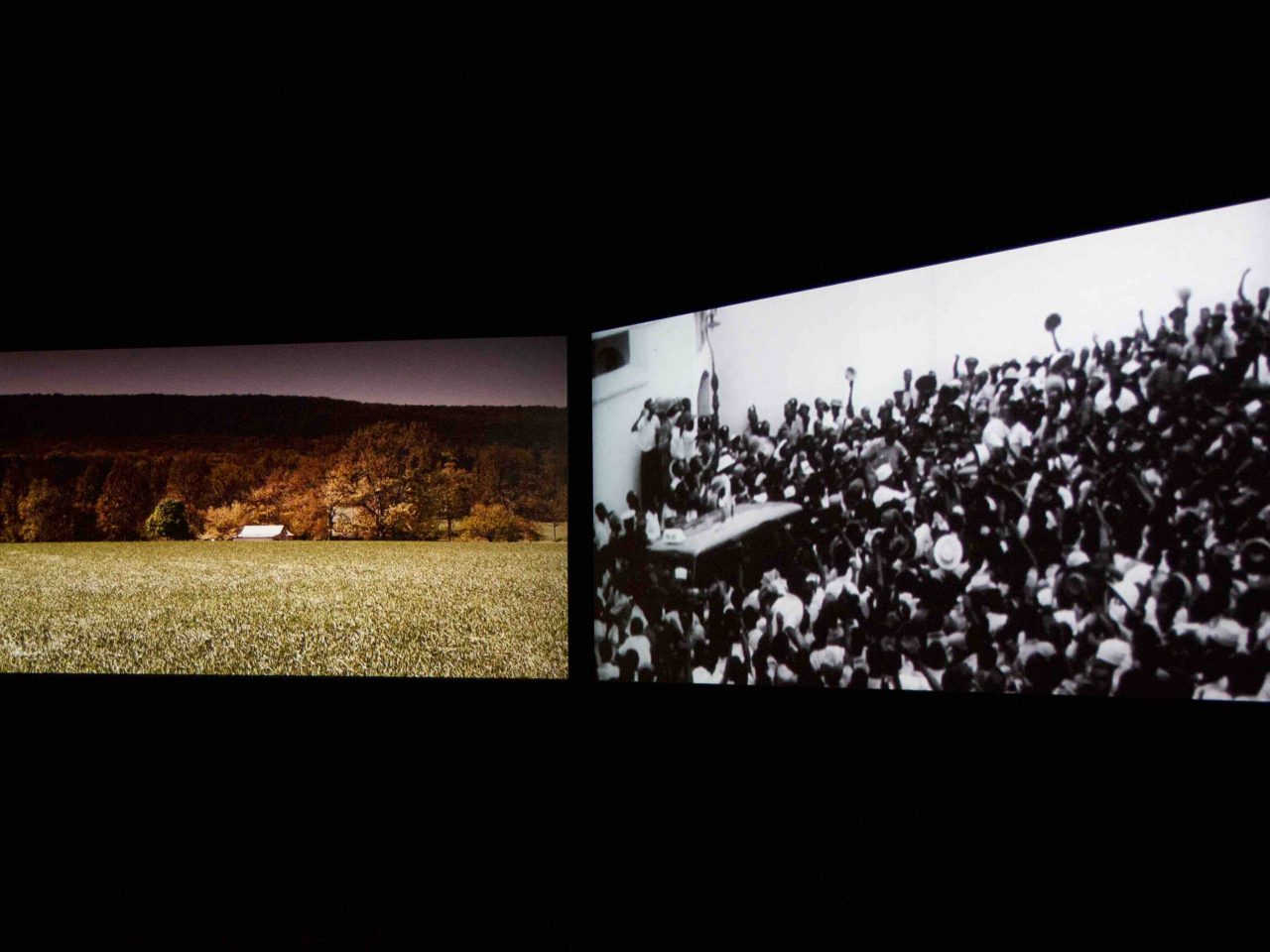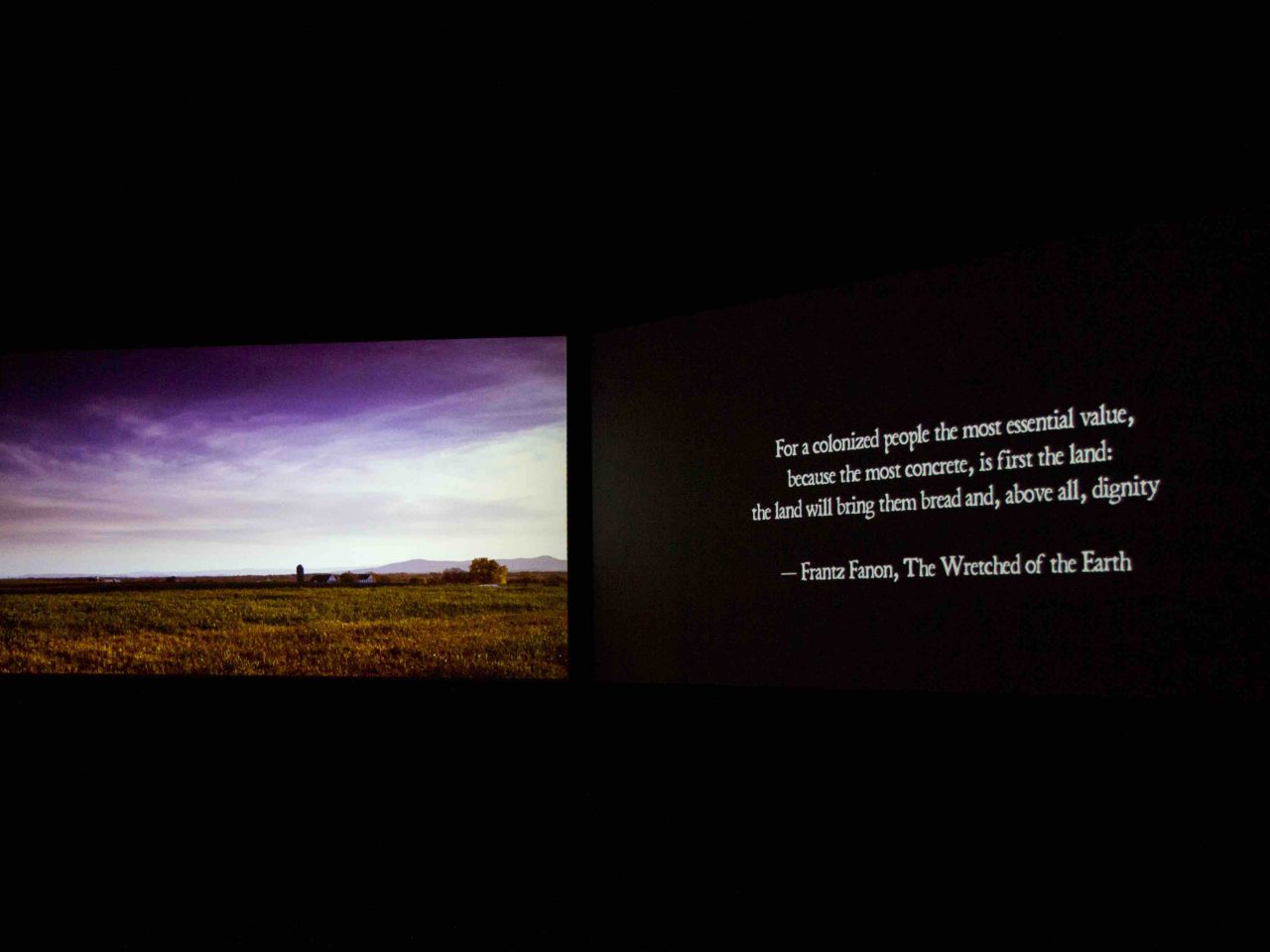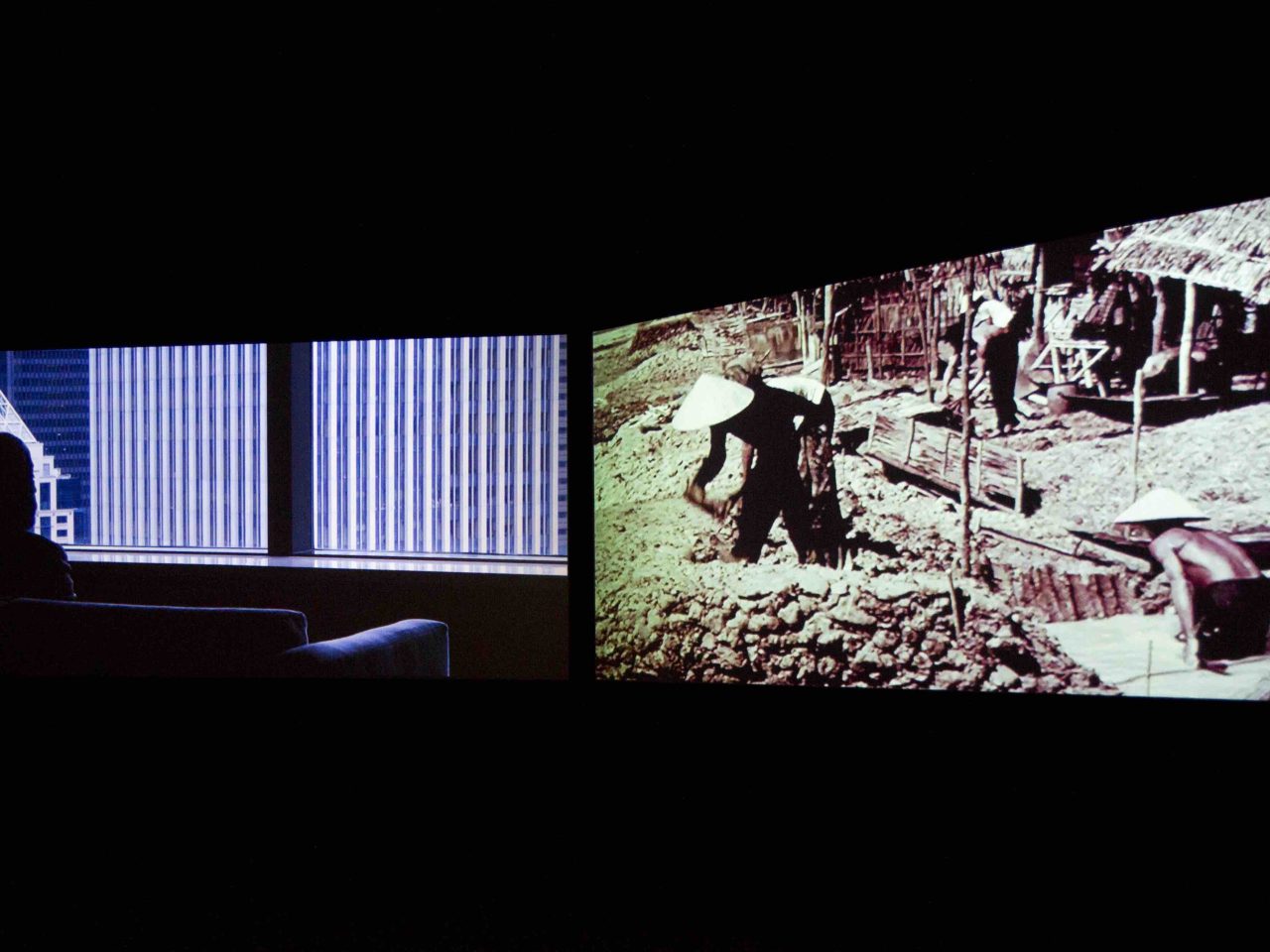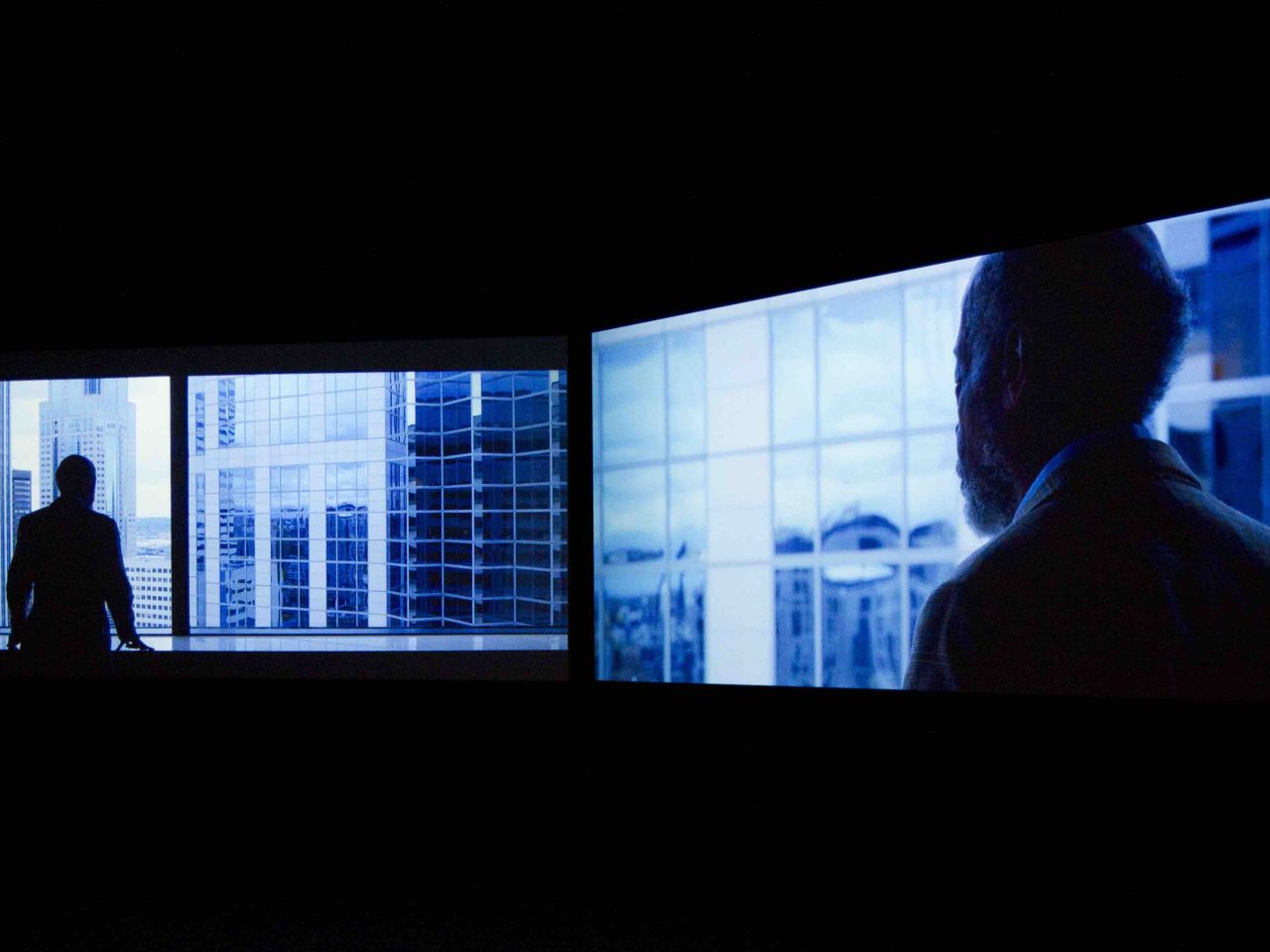John Akomfrah: Imaginary Possessions is organized by the Eli and Edythe Broad Art Museum at Michigan State University and curated by Yesomi Umolu, Assistant Curator. Support for this exhibition is provided by the British Council and the MSU Broad’s general exhibitions fund.
About the Exhibition
Pioneering filmmaker, director, and theorist John Akomfrah (b. 1957) engages with questions of memory and identity to create moving-image works that address the histories of the African diaspora. His early projects with the seminal media group Black Audio Film Collective chronicled the emergence of multicultural identities in 1980s Britain while forming the cornerstone of radical artistic practices that address Western society’s anxieties around the legacies of colonialism and empire. With an acclaimed practice that spans more than thirty years of production in cinema, television, and gallery-based installations, Akomfrah is renowned for pushing the boundaries of the documentary form and for innovating with the format of the film essay through a dynamic use of archival and staged footage with multilayered voiceovers. He has exhibited widely at international museums and large-scale exhibitions as well as in numerous film festivals. In 2012 Akomfrah debuted The Unfinished Conversation and The Stuart Hall Project, respectively a multiscreen video installation and documentary on the life and work of the cultural theorist Stuart Hall.
The first substantial presentation of his recent work at a U.S. museum, John Akomfrah: Imaginary Possessions presents three distinct films and a new commission that deftly excavate the fragmented identities of colonial subjects while challenging the received codes of cinematic representation. Peripeteia (2012) unearths the lost histories of black subjects depicted in Western artworks as read through two drawings by German painter Albrecht Dürer. Interweaving fragments from notable costume dramas that have influenced the artist, Psyche (2012) pays homage to the genre while revealing its structural underpinnings. Through an exploration of the theater surrounding the birth of independent African nations after World War II, Transfigured Night (2013) speaks to the fleeting promises and ensuing disappointments of the post-colonial state. In its inventive staging of works across two galleries, this exhibition engenders multiple viewing modalities and cinematic experiences to underscore the fluidity of image and narrative in Akomfrah’s oeuvre.
